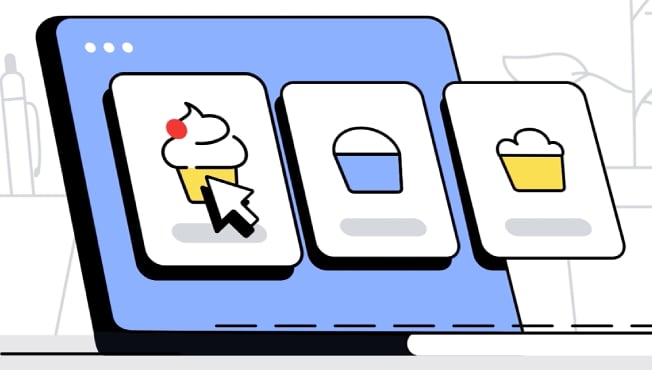App localization is a great tool to boost downloads, get more reviews and move your app up the popular list in Google Play or the app store. One of the primary reasons app localization is essential is that it enables developers to expand their reach and attract a larger audience.
By translating an app into multiple languages, developers can connect with users from different countries and cultures, making their app accessible to a broader range of users. Also, by adapting an app to your user's native language, you provide a sense of familiarity and comfort that can positively impact their perception of the app. This can lead to higher user engagement, better retention, and increased revenue.
However, just as the app development process is time-consuming and costly, the localization process can encounter the same problems. That’s why the best practice is to hire a professional localization agency to help you with this task.
Alconost's experience in app localization
Alconost is a professional localization company with extensive experience in app and game localization. We’ve worked with numerous developers over the past 20 years and helped them expand their reach and increase their user base through effective localization strategies.
Alconost provides a comprehensive range of localization services, including game localization services, cultural adaptation, ASO localization, linguistic testing, and quality assurance. We work with a team of skilled and experienced translators who are native speakers with a deep understanding of regional cultural specifics. They ensure that the localized version of the app or game is accurate, resonates with the local audience, and provides a seamless user experience.
When it comes to app store localization, Alconost understands the importance of creating compelling app descriptions and functionality that effectively communicates the app's value proposition to potential users in their local language. For instance, we localized the Retouchme App in 35 different languages — both in the app store and within the application itself, which helped to boost its rating and increase downloads.
Alconost has 1500+ localization projects in its portfolio and can provide customized connectors and integrators for your system or proprietary file formats. Our team does continuous localization work for frequently updated projects with services like localization testing and proofreading on demand.
Tips for proper app product page localization
Choosing the right languages when localizing your app can be challenging. There are things to consider besides the language — cultural norms, legal practices, worldviews, etc. We want to offer some tips based on the Alconost experience in localization services for mobile apps.
1) Start with the most common languages
When deciding which languages to use when you localize your app store page, start with the most commonly spoken languages worldwide. We’ve analyzed the number of native speakers who are Internet users by native language, the total volume of online sales, and Google Play revenue by region. This resulted in the following top 10 languages for localization:
- French — France, Canada, and Belgium
- German — Germany and Belgium
- Italian — Italy and Switzerland
- Spanish — Spain, Mexico, and Argentina
- Korean — South Korea
- Portuguese — Brazil and Portugal
- Chinese — China and Taiwan (Simplified and Traditional Chinese)
- Japanese — Japan
- Dutch — The Netherlands
- Turkish — Turkey
2) Consider regional financial situations and markets
When choosing a country or region where you’d like to promote your app, keep the socioeconomic situation in mind. As you know, Spanish is spoken in several countries of Latin America (Mexico, Colombia, Venezuela, Argentina, and more), and all of them have differences in vocabulary. But if you are trying to target one specific country, you have to take the socioeconomic situation into account. For example, Venezuela has been in a long financial crisis, and it might not be profitable to localize an app for this market due to the population's low purchasing power.
3) Consider your target audience
Before deciding on the languages in which to localize your app, consider your target audience. Who are your users, and which regions do they come from? If you clearly understand your target audience, you can identify the languages they speak and prioritize those languages for localization.
4) Analyze your app's performance in different regions
If you have already launched your app in different regions, analyze its performance in each region to determine which languages to prioritize for localization. For instance, if your app is popular in Germany, you might consider localizing your app in German first to appeal to users in that region. Alconost can localize your app or game to multiple regions simultaneously, just like we did for Full HP. Full HP is an international mobile game development company. Alconost helped to localize some of their games to 12 different languages, and within 3 years they reached 42 million downloads. Check out their case study here.
5) Consider cultural differences and worldviews
It's crucial to understand what works best culturally in different regions. For example, if you have a calorie tracking app, you need to add local dishes that might not be popular in your country of origin. Also, specific colors may have different meanings in different cultures, and certain images or icons may not be appropriate for certain cultures.
Going global with Alconost
Alconost offers professional app localization services in 100+ languages, established by developers, for developers, that will help you grow. We offer custom localization for mobile, web apps, and software platforms, game localization services, API integration, and cloud-based solutions from scratch. There are several options for completing a project with Alconost.
Full-cycle localization
We recommend choosing this option if you have a large project and might plan to update it regularly. Full-cycle localization is performed by native-speaking professional linguists only. Besides that, you will have a dedicated project manager assigned to your project. This service also offers custom integrations on demand.
Self-service platform
If ordering a full localization process seems too expensive, or you are afraid that this is a rather long process that might result in missing critical deadlines, then platforms like Nitro are just what you need. Alconost's Nitro platform is a powerful tool that can help app and game developers to streamline their localization process and accelerate their time-to-market.
Nitro is an all-in-one platform that enables developers to manage their translation and localization projects more efficiently. Nitro automatically extracts the text from the file to be translated and sends it to Alconost's team of professional translators or native-speaking professional linguists who work on the translation and localization process. This option speeds updates and delivers translation automatically within 24 hours. Nitro enables developers to reduce translation costs and finish the work on time.
Conclusion
As you see, app localization is an essential component of any successful mobile app strategy. By enabling developers to reach a broader audience, build trust and credibility, and cater to unique cultural and linguistic requirements, app localization can help developers to achieve greater success in a highly competitive market. Contact Alconost for any of your app or game localization needs, and we will provide the best possible service to localize your project.




